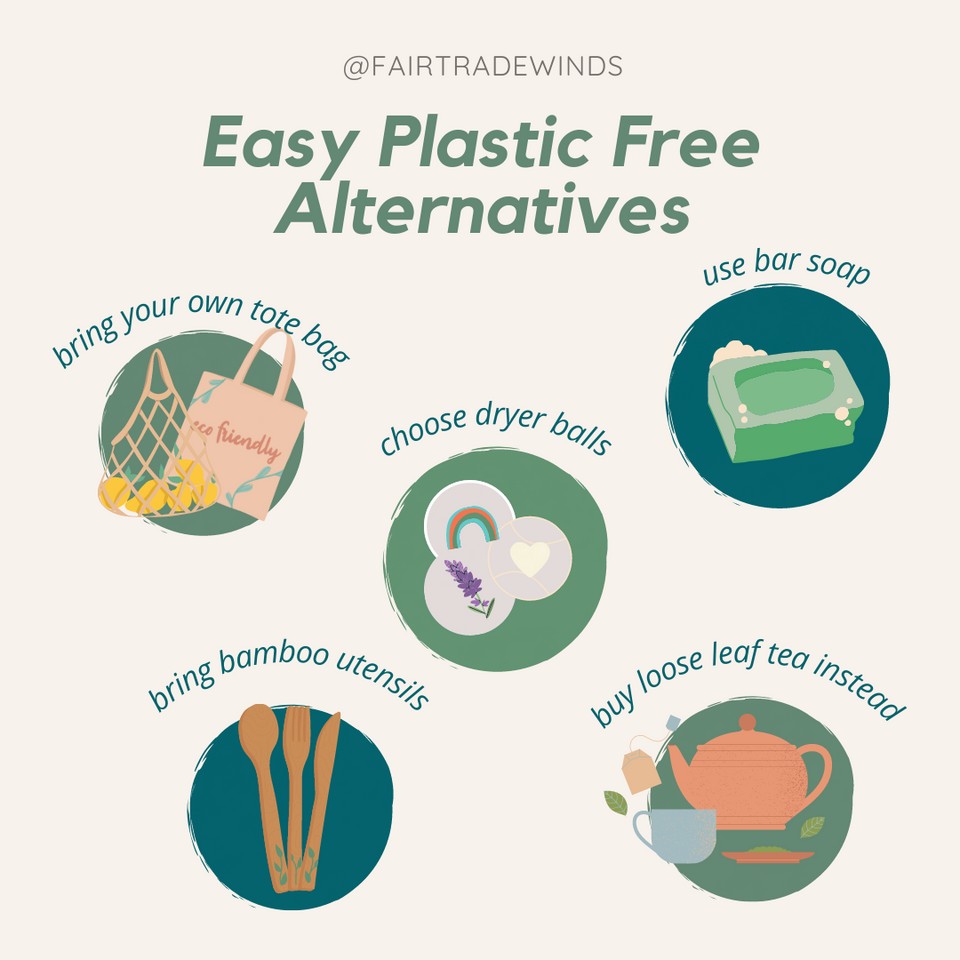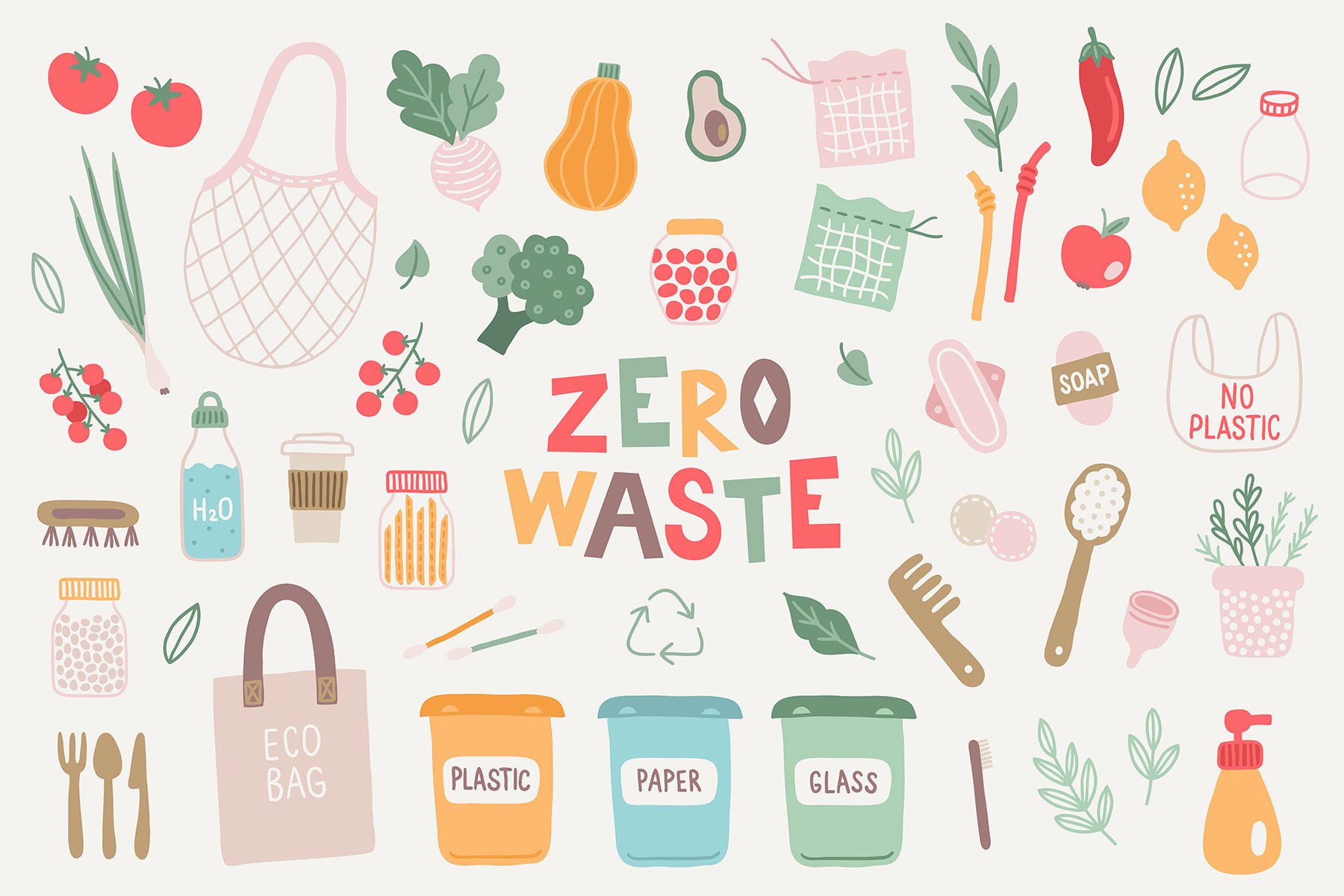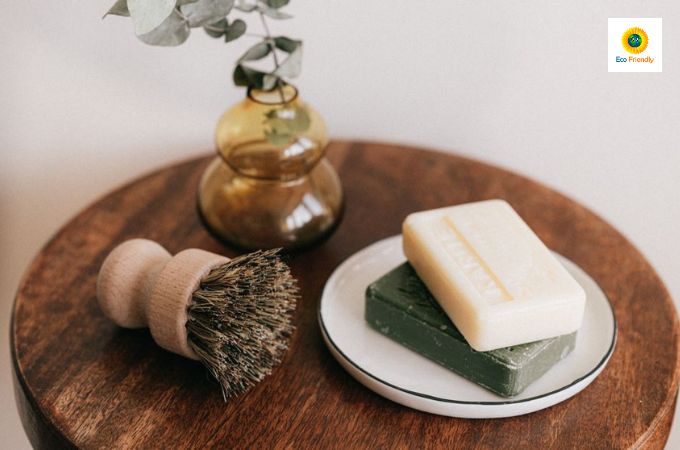Eco Friendly Alternatives To Plastic
Are you tired of plastic waste and looking for eco-friendly alternatives? Well, you’ve come to the right place! In this article, we’ll explore some amazing options that are kind to the planet and can help reduce your plastic consumption. From reusable bags to bamboo toothbrushes, there’s something for everyone who wants to make a positive impact.
Plastic pollution is a serious environmental issue, but the good news is that we can all play a part in finding solutions. By making simple switches in our daily lives, we can greatly reduce our reliance on single-use plastics. From stainless steel straws to biodegradable packaging, there are plenty of eco-friendly alternatives that are both practical and stylish.
Join the movement towards a cleaner, greener future and discover the wide range of eco-friendly alternatives to plastic. Whether you’re passionate about protecting marine life, reducing landfill waste, or simply looking for sustainable options, this article will provide you with practical tips and ideas to help you make a positive impact on the environment. Let’s dive in and explore the world of eco-friendly alternatives to plastic!

Exploring Eco-Friendly Alternatives to Plastic: A Sustainable Choice
In today’s world, the environmental impact of plastic waste is becoming increasingly evident. From its contribution to landfills to its harmful effects on marine life, the need for eco-friendly alternatives to plastic has never been more pressing. Fortunately, there are numerous sustainable alternatives available that can help reduce our plastic consumption and promote a greener future. In this article, we will delve into the world of eco-friendly alternatives to plastic, showcasing their benefits and providing tips for incorporating them into our daily lives.
1. Reusable Bags: A Stylish and Sustainable Solution
Plastic bags contribute significantly to the global pollution crisis. Instead of relying on single-use plastic bags, consider switching to reusable bags made from materials like cotton, canvas, or jute. These bags are not only durable and versatile but also come in a variety of stylish designs. By using reusable bags, you can reduce plastic waste and make a fashion statement at the same time.
When heading to the grocery store or running errands, always keep a reusable bag handy. Many stores now offer discounts or incentives for customers who bring their own bags. This simple switch can have a significant impact on plastic consumption and help protect our planet.
Benefits of Reusable Bags:
- Reduce plastic waste and promote sustainability
- Durable and can carry more items than plastic bags
- Stylish and customizable options available
2. Stainless Steel Water Bottles: Hydrate Responsibly
Plastic water bottles are a major contributor to pollution, with millions ending up in landfills every year. An eco-friendly alternative to plastic water bottles is stainless steel bottles. These bottles are not only durable and long-lasting but also BPA-free, ensuring that you stay hydrated without compromising your health or the environment.
Investing in a stainless steel water bottle is a wise decision. Not only do they help reduce plastic waste, but they also keep your beverages at a desirable temperature for longer periods. From hiking adventures to daily commutes, a reusable stainless steel water bottle will become a trusted companion on your eco-friendly journey.
Benefits of Stainless Steel Water Bottles:
- Reduce plastic waste and environmental pollution
- Durable, long-lasting, and BPA-free
- Retains the temperature of your beverage
3. Bamboo Toothbrushes: Brushing with Sustainability
Did you know that roughly one billion plastic toothbrushes are discarded annually in the United States alone? By switching to bamboo toothbrushes, you can significantly reduce your plastic waste contribution. Bamboo toothbrushes are 100% biodegradable, as the handle is made of sustainable bamboo and the bristles are usually compostable.
When it’s time to replace your toothbrush, consider making the switch to a bamboo alternative. Not only will you be minimizing your plastic usage, but you’ll also be supporting sustainable practices and benefiting from a naturally anti-bacterial material.
Benefits of Bamboo Toothbrushes:
- Reduces plastic waste and its harmful effects on the environment
- Biodegradable and compostable
- Naturally anti-bacterial and sustainable
4. Beeswax Wraps: Preserve Food and Reduce Waste
Plastic wrap is a common household item that is not only harmful to the environment but also poses potential health risks. Beeswax wraps are a fantastic eco-friendly alternative for preserving food while reducing plastic waste. These wraps are made from organic cotton and coated in beeswax, making them moldable and reusable.
Replace your single-use plastic wrap with beeswax wraps to keep your produce fresh and reduce unnecessary waste. They are suitable for covering bowls, wrapping sandwiches, or storing leftovers. With proper care, beeswax wraps can last up to a year, eliminating the need for disposable plastic wrap and contributing to a sustainable lifestyle.
Benefits of Beeswax Wraps:
- Reduces plastic waste and promotes sustainability
- Preserves food effectively without the harmful effects of plastic
- Moldable, reusable, and biodegradable
5. Glass Containers: A Safer and Greener Choice
When it comes to storing food or packing lunches, plastic containers are a common choice. However, they can leach harmful chemicals into your food and contribute to environmental pollution. Glass containers offer a safe and eco-friendly alternative.
Glass containers are non-toxic, durable, and easy to clean. By investing in a set of glass containers, you can reduce your reliance on single-use plastics and enjoy the benefits of a more sustainable and healthier alternative. Whether it’s storing leftovers or bringing lunch to the office, glass containers are a must-have for an eco-conscious lifestyle.
Benefits of Glass Containers:
- Eliminates the use of plastic containers and reduces waste
- Non-toxic, durable, and easy to clean
- Can be used for both storage and meal preparation
6. Silicone Food Storage Bags: Seal in Freshness Sustainably
Another eco-friendly alternative to plastic food storage is silicone bags. These reusable bags are made from food-grade silicone, which is a non-toxic and durable material. Silicone bags are perfect for storing snacks, leftovers, or even liquids without the need for disposable plastic bags.
By incorporating silicone food storage bags into your daily routine, you can reduce your plastic waste and contribute to a cleaner environment. These bags are easy to clean, dishwasher safe, and designed to last for years, making them an excellent choice for sustainable food storage solutions.
Benefits of Silicone Food Storage Bags:
- Reduces plastic waste and promotes sustainable food storage practices
- Non-toxic, durable, and easy to clean
- Can be used for a variety of food storage purposes
7. Plant-Based Bioplastics: A Sustainable Packaging Solution
While plastic packaging is prevalent in various industries, there is a growing demand for more sustainable alternatives. Plant-based bioplastics are a promising solution that can help reduce the carbon footprint associated with traditional plastics, as they are made from renewable resources such as corn starch or sugarcane.
Bioplastics offer an eco-friendly option for packaging materials, reducing our dependence on fossil fuels and minimizing the environmental impact. Companies and consumers alike are increasingly recognizing the importance of choosing sustainable packaging options, paving the way for a greener future.
Benefits of Plant-Based Bioplastics:
- Reduces reliance on traditional plastics made from non-renewable resources
- Reduces carbon footprint and environmental impact
- Offers a more sustainable choice for packaging materials
The Future is Sustainable: Embracing Eco-Friendly Alternatives to Plastic
Eco-friendly alternatives to plastic are becoming increasingly accessible and popular. By incorporating these sustainable choices into our daily lives, we can make a significant positive impact on the environment. Choosing reusable bags, stainless steel water bottles, bamboo toothbrushes, beeswax wraps, glass containers, silicone food storage bags, and plant-based bioplastics are just a few examples of the many eco-friendly options available to us.
It’s important to remember that small individual actions collectively make a big difference. By prioritizing sustainability and making conscious choices, we can build a greener future for ourselves and generations to come.
Eco-Friendly Alternatives to Plastic
- Use reusable bags for shopping.
- Switch to metal or glass water bottles instead of plastic ones.
- Opt for stainless steel or bamboo straws over plastic straws.
- Choose biodegradable or compostable cutlery instead of plastic utensils.
- Use beeswax wraps as an alternative to plastic cling film.
Frequently Asked Questions
Welcome to our frequently asked questions section! Here, we’ll address some of the most common queries about eco-friendly alternatives to plastic. Discover sustainable options that can help reduce plastic waste and protect our environment.
1. What are some eco-friendly alternatives to plastic?
There are various eco-friendly alternatives to plastic that you can use daily. One option is to switch to reusable bags made from materials like organic cotton or jute. These bags are durable, can be used multiple times, and significantly reduce plastic waste. Another alternative is stainless steel or glass water bottles, which eliminate the need for single-use plastic bottles. Additionally, you can opt for reusable food containers and wraps made from materials like silicone or beeswax instead of plastic wrap.
Other eco-friendly options include using bamboo or stainless steel straws instead of plastic ones, using biodegradable or compostable cutlery made from materials like wood or cornstarch, and choosing products with minimal packaging or packaging made from recycled materials. By making these simple switches, you can make a positive impact on the environment and reduce plastic pollution.
2. Are there any eco-friendly alternatives to plastic bags?
Absolutely! If you’re looking for eco-friendly alternatives to plastic bags, there are several options available. One popular choice is reusable grocery bags made from materials like organic cotton or jute. These bags are sturdy, washable, and can be used repeatedly, reducing the need for disposable plastic bags. Another option is mesh produce bags that can replace the thin plastic bags typically used for fruits and vegetables. These reusable bags are lightweight and allow airflow while keeping your produce fresh.
For smaller items like sandwiches or snacks, you can consider using reusable silicone food bags or wraps. These alternatives are convenient, easy to clean, and eliminate the need for single-use plastic bags. Another innovative option is plant-based biodegradable bags made from materials like cornstarch or cassava. These bags are designed to break down naturally in the environment, reducing plastic waste. By using these eco-friendly alternatives, you can make a positive change and reduce your reliance on plastic bags.
3. How can I reduce my use of plastic bottles?
To reduce your use of plastic bottles, you can switch to reusable alternatives. One option is to invest in a stainless steel water bottle. These bottles are durable, BPA-free, and can be refilled countless times. Another choice is glass water bottles, which are easily washable and provide a sleek, eco-friendly alternative. By refilling your water bottle instead of buying single-use plastic bottles, you’ll not only save money but also help reduce plastic waste.
If you prefer filtered water, consider using a water filter pitcher or a faucet attachment with a built-in filter. This way, you can enjoy clean and safe water straight from the tap without the need for plastic bottles. It’s also worth considering using a reusable coffee cup or travel mug when you’re on the go, instead of using disposable cups from coffee shops. These small changes can add up and make a significant difference in reducing plastic bottle consumption.
4. Are there eco-friendly alternatives to plastic straws?
Absolutely! If you want to reduce your use of plastic straws, there are many eco-friendly alternatives available. One popular option is using bamboo straws. These straws are reusable, biodegradable, and have a natural aesthetic. Another alternative is stainless steel straws, which are durable, easy to clean, and can be used over and over again. Both bamboo and stainless steel straws come with a cleaning brush to ensure proper hygiene.
If you prefer disposable options, you can choose straws made from materials like paper or even edible alternatives like pasta or sugar cane. These straws break down more easily in the environment compared to traditional plastic straws, reducing the harm caused to wildlife and ecosystems. By opting for these eco-friendly alternatives, you can enjoy your favorite beverages without contributing to plastic pollution.
5. Are there alternatives to single-use plastic cutlery?
Yes, there are alternatives to single-use plastic cutlery that you can consider. One option is using cutlery made from sustainable materials like bamboo or wooden utensils. These alternatives are lightweight, durable, and can be reused multiple times. They are perfect for picnics, office lunches, or camping trips, and are much more environmentally friendly than disposable plastic cutlery.
Another alternative is opting for biodegradable or compostable cutlery made from materials like cornstarch or wheat straw. These utensils are designed to break down quickly and naturally in the environment, reducing the amount of plastic waste that ends up in landfills. By making these small changes, you can enjoy your meals without harming the planet.

Summary
Plastic is harmful to the environment, but there are eco-friendly alternatives. Instead of plastic bags, use reusable cloth bags. Metal or glass water bottles can replace plastic ones. Choose products made from natural materials like bamboo instead of plastic. Recycling is important but reducing and reusing should be the priority. By making small changes, we can all help protect our planet.

